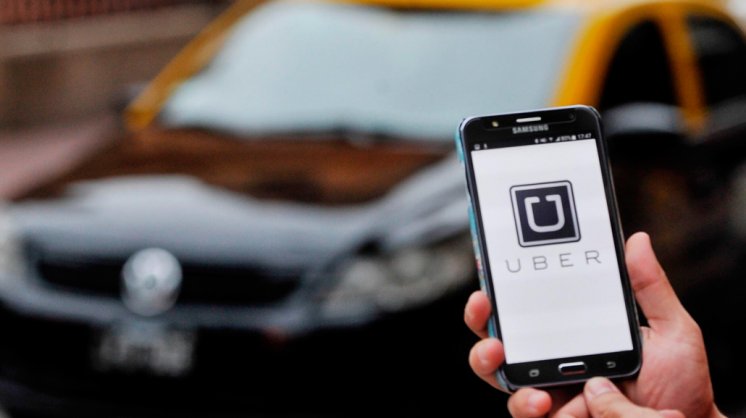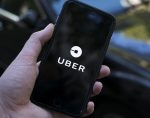Were you one of the good Samaritans that participated in #DeleteUber?
Well, if you were, you may not be as altruistic as you thought. If you haven’t had a chance to read this Forbes article yet, go ahead and do so, as it might temper your clickbait trigger a mite. In the meantime, here’s a more concise explanation of the events that led the vindictive hashtag to be retweeted into history.
The New York Taxi Workers Alliance did a somewhat acknowledgeable action of boycotting pick-ups at JFK airport for one hour on Jan. 28, in the midst of the Muslim Ban.
Uber, on the other hand, decided to allow their drivers to continue service to the airport if they wished, and, because demand for rides would skyrocket without the option of taxis, the ride-share service also suspended surge pricing. Unfortunately, Uber’s decision was interpreted as a way of capitalizing off of the Muslim Ban, and though I couldn’t tell you who this person is, their tweet ignited the firestorm that later swept through Twitter.
Since not everyone may understand how surge pricing works, in short, when demand for rides is high in a particular area, Uber will increase the rate at which they pay their drivers, as well hike the rate they charge customers, which encourages more drivers to get on the road. In the instance of the Muslim Ban though, Uber suspended their normal policy, one that allows the company and its drivers to make more money, which seems like the exact opposite of “capitalizing” on the crisis.
When the taxis disappeared, Uber just replaced them, which is what the service does in the first place—provide travelers with cheap travel; the company had and still has the right to do that. Uber is not a taxi service, as just like their competitor, Lyft (who did try to capitalize with a P.R. stunt), they are in the ride-share market, a market that competes with the taxi market.
Unless you have missed the last four years of Uber vs. Taxi in-fighting, you would know that the two transportation models have been fighting tooth and nail over regulations and jurisdiction. I’ll link one article for reference, but this should be common knowledge.
The other issue critics had with Uber was the fact that the CEO, Travis Kalanick, sat (but has reportedly left) on President Trump’s Economic Advisory Group. Before leaving, Kalanick produced a statement on the matter, in which he outlined his stance on opposing the Muslim Ban and why he chose to be a part of the group in the first place.
As a result, the question must be asked: What is the consumer’s responsibility in an issue like this? When your misinformation harms your own life, that’s one thing, but when it impacts businesses that are composed of people, that’s another. I’m not asking you to cry for Uber, although I’m sure they lost a decent portion of business (not mine), but this sort of thing can unfairly tarnish a reputation.
Furthermore, I am disappointed in Kalanick’s move to step down from the advisory group, as I understood and agreed with his reasoning. Even if I didn’t though, and even if he was lying in his statement, as he noted, we have the right to agree and disagree just like with anything. The problem isn’t so much what your belief is, but on what facts is that belief based?
I had some discourse with some of my Twitter mutuals on the matter, and immediately someone hopped in with the suggestion, “Oh, the CEO supports Trump [which is why] they broke the boycott.”
Really? Dozens of other businesses continued business as usual during the protests, and I’m sure the kiosks hawking bottled water and cold cuts made a killing, though their alliances with the president seem to have been glossed over. Plus, sitting on Trump’s business advisory board in no way condones his behavior; if it does, then Teslas and Pepsi are off the table as well.
In an age where everyone and everything needs to have a political opinion, Uber is unfairly coming under fire for letting their employees make a living; doesn’t it make more sense to allow the individual drivers to make their own decisions, rather than be slave to their CEO’s public persona? On top of it all, the taxi boycott lasted all of one hour, hardly a massive show of solidarity.
Next time Twitter urges you to make an economic decision, do a little research beforehand. There are likely to be many more protests and bans in the next four years, so learning how to navigate their accusations and edicts will be critical. Trump wins if the finger-pointing the current atmosphere of finger-pointing persists, because it keeps everyone preoccupied with each other. Think critically about political decisions, just as you would personal or professional ones. Sometimes, being the first person to respond actually means being the first person to be wrong.


















Frankly, you sound like a Trump apologist. Your amoral view of ‘business is business, folks’ appears to be completely devoid of any sense of corporate social responsibility. Consider the context: The Muslim ban harms many Uber workers, some of whom may have been caught in the flight bans. It is offensive to most educated citizens (and likely, a vast majority of Uber riders – does Uber even understand its customer base?).
So what might a ‘conscious capitalism’ enterprise do, to show solidarity? One option would have been to halt all pickups at the airport to show solidarity – why not show support for the protest? It could have announced surge pricing (or non-surge pricing) paired with an immediate, vehement denunciation of the Ban. Instead, Kalanick’s letter (which you link) was only produced well after the #deleteuber phenomenon was well underway, and after a couple dumb Uber tweets about a ‘misunderstanding’.
Uber has a history of being tone deaf (at best) in its public communications and a long history of playing hardball with cities and regulators, so it’s not exactly the innocent actor you frame it to be. If you’d like to continue using Uber, hey, it’s a free country. But spare us the apologist lecture – for many consumers, deleting the app has been a long time coming.
Author here.
As a Bernie, then Jill Stein supporter in the past election, a Trump apologist is the LAST thing that I am. In fact, this article has little to do with him other than people pinning him to be in cahoots with Uber’s CEO.
What about the people working for a living? What about the Muslim drivers that night?
One of the perks of ride share is that you can drive at any hour. There is no direct supervision, and they stayed true to that.
“Conscious capitalism?” There is little consciousness in a system that has created and instilled classes and ultimately a divide within society.
Regardless of the socialist scum who replied already (Hospital Bills for Antifa Shills MAGA) Uber’s CEO didn’t catch hell for “continuing service” he caught hell (and rightfully so) for siding with FOREIGNERS over AMERICANS.
Hardworking hustlers who tend to be the type that drive for Uber frown on that shit.